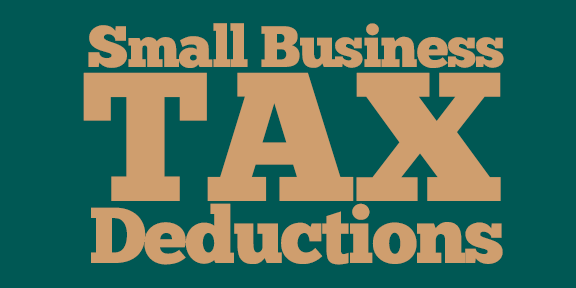Commonly Overlooked Business Deductions

By Debbie Gregory.
Since tax laws are constantly changing, it can be quite challenging for a non-tax professional to stay on top of every change and every possible deduction that is out there. Therefore, many deductions are totally overlooked by most people.
Here are ten of the most common business deductions that are usually forgotten (or simply unknown) when tax time comes around:
1.) Depreciation
It is always a good idea to look over the prior year’s taxes to make certain that you are properly writing off any depreciation of business property. For more information on depreciation please read the IRS publication here : https://www.irs.gov/pub/irs-pdf/p946.pdf
2.) Bad Debt
If you or your business loaned money to someone and you have not been repaid you may be able to deduct that loss from your taxes.
3.) Cancellations
Not everything goes according to plan and often failed plans come with hefty fees. This category refers to things like a business trip that you had booked that you were forced to reschedule. The fees from the airline or hotel that you lost can be deducted.
4.) Bank Fees
If you pay any fees to banks for your business checking account, ordering checks, ATM fees, or any other banking fees you can deduct those fees.
5.) Accounting Fees
If you pay a CPA or tax professional to prepare your taxes every year, that fee you pay to them is deductible on your next year’s taxes. Make sure to check the prior year and get that deductible. Please check with your tax professional as there have been some changes regarding this deduction.
6.) Carryover
Taxes from prior years can occasionally provide you deductions in the current tax year. Carryovers can include items such as capital losses, investment interest, charitable contributions, home office deductions, operating losses, and more. It is always a good idea to re-check prior years when you sit down to do your taxes.
7.) Travel Expenses
Most people know that business travel expenses like car rentals and airfare are all deductible but they often overlook smaller fees that can really add up. Fees such as baggage fees, toll roads, or optional vehicle insurance.
8.) Home Office
Roughly half of all businesses in the US report as home-based businesses and in response, the IRS has created a standard deduction for home office use. If you qualify, don’t forget to grab this deduction. For more on home office deductions please visit the IRS’ website here : https://www.irs.gov/businesses/small-businesses-self-employed/simplified-option-for-home-office-deduction
9.) Startup Costs
If you started your business during the year you are filing your taxes, you may qualify for a number of deductions for costs incurred before you even opened your doors. These costs are treated like capital expenditures and are added as an investment in the business. In your first business year, you can deduct up to $5,000 and any remaining costs over that amount are then amortized (up to 15 years).
10.) Miscellaneous Expenses
There are a whole lot of smaller expenses that you can and should deduct on your taxes related to business. Items such as grabbing a cup of coffee with a customer, sending a vendor a thank you gift, and business or trade magazines. It is best to keep a good log of these smaller expenses, along with their receipts. For more on these types of expenses and what you can deduct please take a few minutes to look over the IRS’ web page on this topic here : https://www.irs.gov/businesses/small-businesses-self-employed/what-kind-of-records-should-i-keep
If you have any questions, concerns, or a desire to learn about more potential tax breaks for you or your business, it is best to sit down with a certified CPA or tax advisor. You can also go to the IRS’ website (https://www.irs.gov/) at anytime and learn more.










